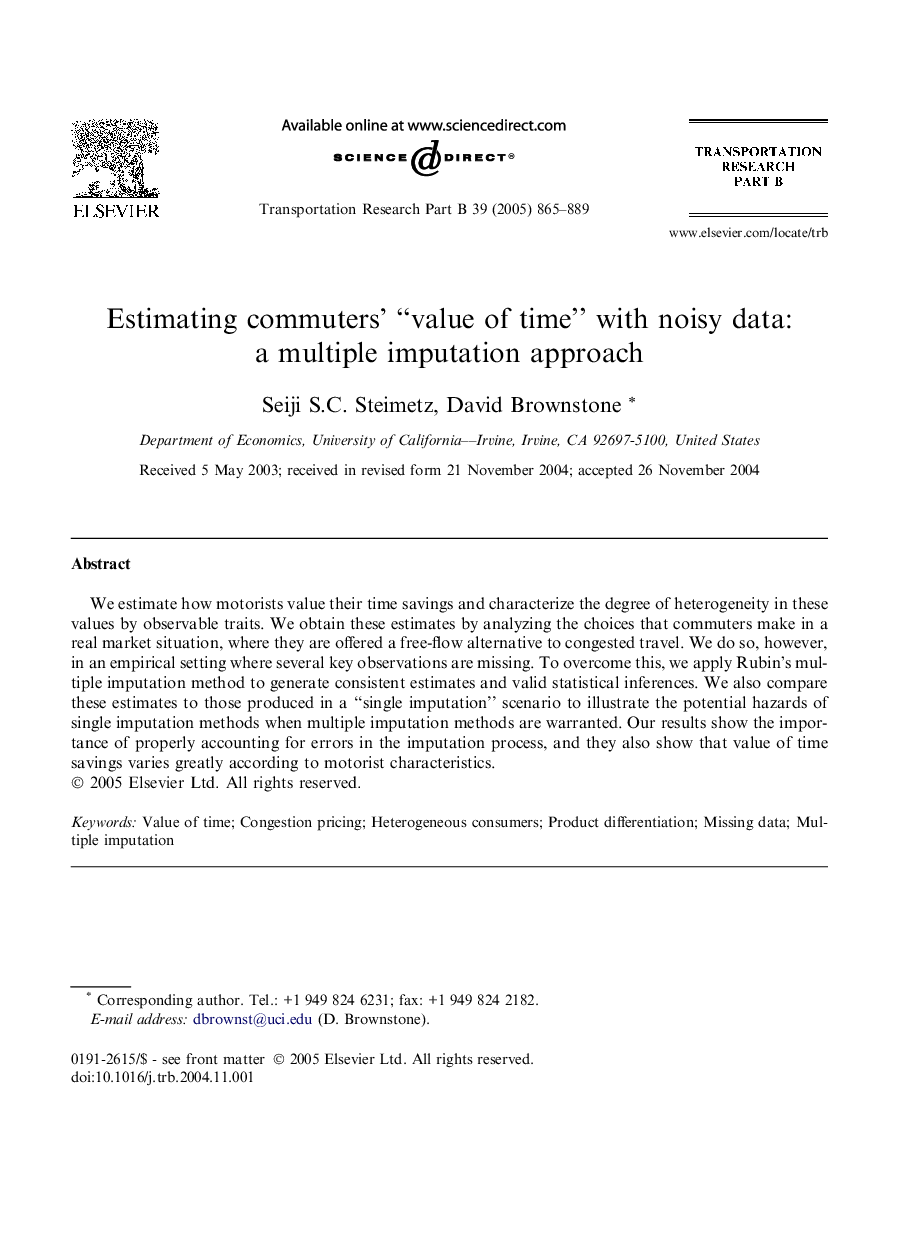| Article ID | Journal | Published Year | Pages | File Type |
|---|---|---|---|---|
| 10522817 | Transportation Research Part B: Methodological | 2005 | 25 Pages |
Abstract
We estimate how motorists value their time savings and characterize the degree of heterogeneity in these values by observable traits. We obtain these estimates by analyzing the choices that commuters make in a real market situation, where they are offered a free-flow alternative to congested travel. We do so, however, in an empirical setting where several key observations are missing. To overcome this, we apply Rubin's multiple imputation method to generate consistent estimates and valid statistical inferences. We also compare these estimates to those produced in a “single imputation” scenario to illustrate the potential hazards of single imputation methods when multiple imputation methods are warranted. Our results show the importance of properly accounting for errors in the imputation process, and they also show that value of time savings varies greatly according to motorist characteristics.
Keywords
Related Topics
Social Sciences and Humanities
Decision Sciences
Management Science and Operations Research
Authors
Seiji S.C. Steimetz, David Brownstone,
